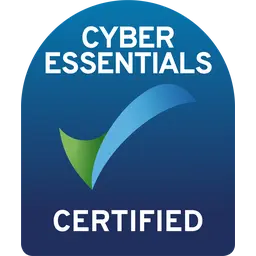1. ABOUT THIS PROCEDURE
1.1 It is our policy to ensure that all employees have access to a procedure to help deal with any complaints relating to their employment fairly and without unreasonable delay. We aim to investigate any formal complaint you raise, hold a meeting to discuss it with you, inform you in writing of the outcome, and give you a right of appeal if you are not satisfied.
1.2 This procedure applies to all employees regardless of length of service. It applies to agency workers or self-employed contractors. A separate procedure addressing client complaints is attached as ‘Appendix A’ at the end of this policy.
1.3 This policy does not form part of any employee’s contract of employment and we may amend it at any time.
2. USING THIS PROCEDURE
2.1 Issues that could cause complaints may include:
(a) terms and conditions of employment;
(b) health and safety;
(c) work relations;
(d) bullying and harassment;
(e) new working practices;
(f) working environment;
(g) organisational change; and
(h) discrimination.
2.2 We operate a separate Malpractice Policy to enable employees to report illegal activities or wrongdoing.
2.3 If you have difficulty at any stage of the Complaints process because of a disability or because English is not your first language, you should discuss the situation with your manager as soon as possible.
2.4 Written complaints will be placed on your personnel file along with a record of any decisions taken and any notes or other documents compiled during the Complaints process. These will be processed in accordance with our Data Protection Policy.
3. RAISING COMPLAINTS INFORMALLY
3.1 Most complaints can be resolved quickly and informally through discussion with your manager. If this does not resolve the issue, you should follow the formal procedure below.
4. FORMAL WRITTEN COMPLAINTS
4.1 If your complaint cannot be resolved informally you should put it in writing and submit it to manager, indicating that it is a formal complaint. If the complaint concerns your manager, you may submit it to Senior Management instead.
4.2 The written complaint should contain a brief description of the nature of your complaint, including any relevant facts, dates, and names of individuals involved. In some situations we may ask you to provide further information.
5. INVESTIGATIONS
5.1 It may be necessary for us to carry out an investigation into your complaint. The amount of any investigation required will depend on the nature of the allegations and will vary from case to case. It may involve interviewing and taking statements from you and any witnesses, and/or reviewing relevant documents.
5.2 You must co-operate fully and promptly in any investigation. This may include informing us of the names of any relevant witnesses, disclosing any relevant documents to us and attending interviews, as part of our investigation.
5.3 We may initiate an investigation before holding a complaints meeting where we consider this appropriate. In other cases we may hold a complaint meeting before deciding what investigation (if any) to carry out. In those cases we will hold a further complaint meeting with you after our investigation and before we reach a decision.
6. RIGHT TO BE ACCOMPANIED
6.1 You may bring a companion to any complaints meeting or appeal meeting under this procedure. The companion may be a colleague. You must tell the person holding the complaints meeting who your chosen companion is, in reasonable time before the meeting.
6.2 We may, at our discretion, allow you to bring a companion who is not a colleague (for example, a member of your family) if this will help overcome a disability, or if you have difficulty understanding English.
7. COMPLAINTS MEETINGS
7.1 We will arrange a complaint meeting, normally within four weeks of receiving your written complaint.
7.2 You and your companion (if any) should make every effort to attend complaint meetings. If you or your companion cannot attend at the time specified, you should inform us immediately and we will try, within reason, to agree an alternative time.
7.3 The purpose of a complaints meeting is to enable you to explain your complaint and how you think it should be resolved, and to assist us to reach a decision based on the available evidence and the representations you have made.
7.4 After an initial complaints meeting we may carry out further investigations and hold further complaints meetings as we consider appropriate. Such meetings will be arranged without unreasonable delay.
7.5 We will write to you, usually within two weeks of the final complaints meeting, to inform you of the outcome of your complaint and any further action that we intend to take to resolve the complaint. We will also remind you of your right of appeal. Where appropriate we may hold a meeting to give you this information in person.
8. APPEALS
8.1 If the complaint has not been resolved to your satisfaction you may appeal in writing to Senior Management, stating your full grounds of appeal, within one week of the date on which the decision was sent or given to you.
8.2 We will hold an appeal meeting, normally within two weeks of receiving your written appeal.
8.3 We will confirm our final decision in writing, usually within one week of the appeal hearing. This is the end of the procedure and there is no further appeal.
APPENDIX A: CLIENT COMPLAINTS PROCEDURE
ABOUT THIS PROCEDURE
It is our policy to ensure that all clients have access to a procedure to help deal with any complaints relating to Floreo Associates Ltd services fairly and without unreasonable delay. We aim to investigate any formal complaint you raise, inform you in writing of the outcome, and provide recourse for further discussion if you are not satisfied.
RAISING COMPLAINTS INFORMALLY
Most complaints can be resolved quickly by email or telephone. Contact details of Senior Management are provided below. If this does not resolve the issue, you should follow the formal procedure below.
FORMAL WRITTEN COMPLAINTS AND APPEALS
If your complaint cannot be resolved informally you should put it in writing and submit it to Senior Management by email or post, indicating that it is a formal complaint. The written complaint should contain a brief description of the nature of your complaint, including any relevant facts, dates, and names of individuals involved. In some situations, we may ask you to provide further information.
We will write to you, usually within two weeks of the formal written complaint being received, to inform you of the outcome of your complaint and any further action that we intend to take to resolve the complaint. We will also remind you of your right of appeal.
If the complaint has not been resolved to your satisfaction you may appeal in writing to Senior Management, stating your full grounds of appeal, within one week of the date on which the decision was sent or given to you. You may ask for a face to face meeting or telephone call to discuss your appeal, at a time that is convenient for both parties.
We will confirm our final decision in writing, usually within one week of the appeal. This is the end of the procedure and there is no further appeal.


